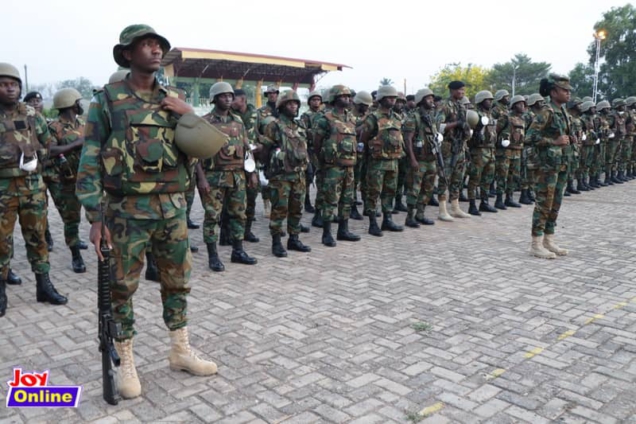It is quite clear by now that a good proportion of Ghanaians appreciate the importance of restricting movement of persons in limiting the further spread of the COVID-19.
Simply put, this is a critical measure needed to among other things minimize horizontal transmission, allow for a more efficient contact tracing and monitoring of persons in quarantine/isolation, allow the health service and government to get ahead of the disease in terms of preparation and also reduce the pressure on limited resources.
Restricting movement (for want of better terminology) is for the government to decide how best it wants to enforce it.
The Ghana Medical Association recommends a total lockdown in an urgent effort to highlight the important role movement of persons plays in the spread of this virus.
This suggestion is made not out of insensitivity to the socioeconomic plight of the ordinary Ghanaian but rather because the GMA trust it is the best way to preserve precious lives.
Instead of wasting time in defining terminologies or deciding who loves the poor and 'vulnerable' more or who has done sociology and who has not, or behaving like Paul Adom Okyere in abusing professional groups, or deciding the group that has done a better socioeconomic impact assessment, it would be more useful to explain what to do in restricting movements.
All ‘non-essential’ services
should be closed and staff instructed to stay home as much as possible.
All 'essential' travels must stop as much as possible.
Only shops selling essential goods such as grocery shops and foodstuff sellers should be allowed to operate while shops selling ‘non-essential’ goods be closed.
Any movement out of one's place of abode or work must be for seeking an 'essential need'.
I am sure every Ghanaian can assess his/her current situation and map out a plan to drastically reduce his/her movement.
An effort to restrict movement now may ensure the virus does not spread to the inner cities and rural areas where containment would be arduous.
It is now for the government as leadership with the capacity to gather relevant data for impact analysis to ultimately decide the extent of restrictions and to identify which services should remain 'essential' considering the exigencies of the time.
No matter what we decide for ourselves as a nation, we need to all understand that the more restricted our movements are, the better for us in limiting the spread of the virus. Let us all take a breath to swallow this very bitter pill of 'restricting movement'.
Let us all do what we can to stop this virus that has the ability to destroy the manpower we have taken many years to build and develop. I am because we are. We are in this together.
Latest Stories
-
Expect more good news in the mid-year budget – Mahama
1 minute -
Super-Sub Frank Adjei strikes to earn Varnamo point
9 minutes -
Samuel Ofosu Ampofo chairs 11-Member Ghana Cocoa Board
13 minutes -
Blossom Academy brings “GROW” programme to Kumasi to expand Data Skills
24 minutes -
Medeama coach Ibrahim Tanko eyes victory against Karela United
28 minutes -
Brilliant PRESEC-Legon student receives full scholarship from Academic City
55 minutes -
Emirates inaugurates experiential Emirates Travel Store in Accra
1 hour -
José Mujica: The philosopher-president who showed the world a better way to lead
1 hour -
Kenyans in Ghana bring the vibes: A day of games, giggles, and good times
1 hour -
Indians urge Turkey boycott amid regional tensions
2 hours -
GNPC Ag. CEO outlines strategic upstream reset at Africa Energies Summit
2 hours -
Speak Up Africa galvanises private sector engagement to accelerate malaria-elimination efforts
2 hours -
Delegates walk out of Fifa congress after Infantino arrives late from Trump trip
2 hours -
Nissan says it could share global plants with Chinese state firm
2 hours -
The Potential of Local Foods in Hypertension Prevention and Treatment
2 hours

